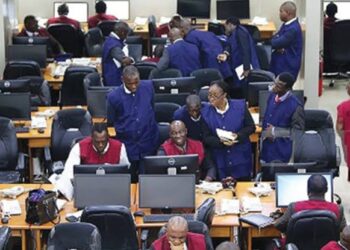Nigeria’s Dangote refinery is planning a dual listing on the London and Nigerian stock exchanges, a senior executive announced on Tuesday.
On Tuesday, media reports quoted Aliko Dangote, the Chairman of the Dangote group, stating that he might attempt to list the company in Nigeria by the end of the year.
Devakumar Edwin, the Dangote refinery executive, told Reuters that the Nigerian Stock Exchange alone would not be able to handle the refinery exclusively giving way to the London listing.
He said, “We have listed all our businesses. The NSE (Nigerian Stock Exchange) will not have adequate depth to handle exclusively the petroleum refinery. We would have to take it to LSE (London Stock Exchange) but also list in NSE.”
Africa’s richest man also has interests in Dangote Cement, Dangote Flour Mills, and Dangote Sugar, all of which are listed on the Nigerian stock exchange.
The refinery, Africa’s largest, is on a peninsula on the outskirts of Lagos, the commercial capital, and was built for $20 billion after several years of delays. It has the capacity to refine up to 650,000 barrels per day (bpd) and will be the largest in Africa and Europe once it reaches full capacity this year or next. Dangote has been working to secure crude supplies for the refinery.
The Dangote refinery recently secured a deal with oil major TotalEnergies for the supply of crude oil to the facility. The refinery in recent times has had to import oil from the United States despite being located in Africa’s biggest oil producer.
Planned commencement of PMS refining
The planned listing of the refinery on both the NGX and LSE coincides with plans for the refinery to start production of PMS.
The Chairman of the refinery, Alhaji Dangote had earlier stated that refining of PMS would begin next month in contrast to opinions from Standard and Poor’s (S&P) analysts who had earlier stated that a more realistic timeline for roll out of PMS would be in the fourth quarter of the year.
The Dangote refinery has failed to meet production timelines in the past and only began distribution of diesel and aviation fuel almost eight months after commissioning in May last year.
The refinery hopes to significantly reduce energy importation not only in Nigeria but across West Africa.
An earlier report from Nairametrics noted that the commencement of full production in the refinery would result in the closure of some refineries in Europe primarily exporting significantly reducing the $17 billion pie of gasoline import to Africa.



















